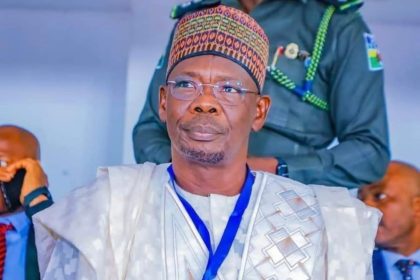By Adeyemi Adekunle
Prime Minister Justin Trudeau is facing an unprecedented wave of internal dissent, as a growing number of Liberal MPs, primarily from Ontario, are urging him to step down following a tumultuous week for his government.
The calls for Trudeau’s resignation have reached a fever pitch after an extraordinary meeting of over 50 Liberal MPs from Ontario on Saturday, where many voiced their concerns about his leadership and the future of the party.
The closed-door meeting, lasting just over an hour, was characterized by frank and, at times, harsh critiques of Trudeau’s leadership.
According to sources, the dominant sentiment was that Trudeau’s political brand, once synonymous with optimism and progressive values, has become “toxic” and a liability as the party faces the prospect of an early federal election. Few MPs defended the prime minister during the discussion, reflecting a striking shift in caucus loyalty.
Michael Coteau, chair of the Ontario Liberal caucus, was tasked with delivering the group’s concerns to Trudeau. While Coteau declined to comment, MPs in attendance described a sense of urgency to resolve the leadership crisis.
Chandra Arya, the MP for Nepean, has been among the most vocal critics. In a letter to Trudeau released on Friday, Arya called for him to “step aside as leader of the Liberal caucus immediately.”
The letter cited the loss of confidence within the party and Parliament, adding that the prime minister’s leadership no longer has the support it once commanded.
“While I align as a fiscally center-right Liberal and have often disagreed with your left-leaning positions, I have consistently supported you,” Arya wrote in the letter shared on social media.
“However, it became apparent today that you no longer hold the confidence of the House of Commons. Now I am reasonably certain that a majority of the Liberal caucus no longer supports your leadership.”
Arya reiterated his stance in an interview on Sunday, emphasizing that calls for Trudeau to step down have grown rapidly over the past 48 to 72 hours. “In my opinion, I think the prime minister is seriously considering [resignation],” Arya said. “It’s a question of when—whether it has to be done now.”
Trudeau, who remained in Ottawa on Sunday, did not respond to requests for comment. His official schedule showed no public events, leaving speculation to mount about his next move.
The chaos within the Liberal Party was exacerbated earlier this week by the resignation of Chrystia Freeland, the deputy prime minister and finance minister, who is widely regarded as a potential successor to Trudeau.
Freeland’s departure from cabinet has thrown the government into disarray, with some MPs advocating for her to assume the leadership role.
“Chrystia Freeland is a credible and stable option,” Arya remarked. However, sources close to Freeland have suggested that speculation about her leadership is premature.
She attended Saturday’s caucus meeting but did not address the gathering, fueling further uncertainty about her political intentions.
The discontent within the Liberal caucus comes amid broader dissatisfaction with Trudeau’s leadership among Canadians.
Recent polling indicates that 78% of Canadians believe it is time for a new government, underscoring the mounting pressure on Trudeau to step aside to preserve his party’s chances in the next election.
Montreal MP Anthony Housefather echoed this sentiment, stating that the “vast majority” of his colleagues believe Trudeau should resign. “The message is clear: we need a fresh start,” he said.
Adding to the urgency is the upcoming inauguration of the new U.S. administration under Donald Trump, scheduled for January 20.
Many Liberals feel the party must resolve its leadership turmoil quickly to present a unified front during a pivotal period for Canada’s relations with its southern neighbor.
While some MPs have remained supportive of Trudeau, including Yasir Naqvi, Shafqat Ali, and Majid Jowhari, their silence over the weekend has been conspicuous. None responded to requests for comment on Sunday, further signaling a party in flux.
Trudeau, who has led the Liberals since 2013, brought the party to power in 2015 with a resounding majority. However, his tenure has been marred by controversies and diminishing public support in recent years.




